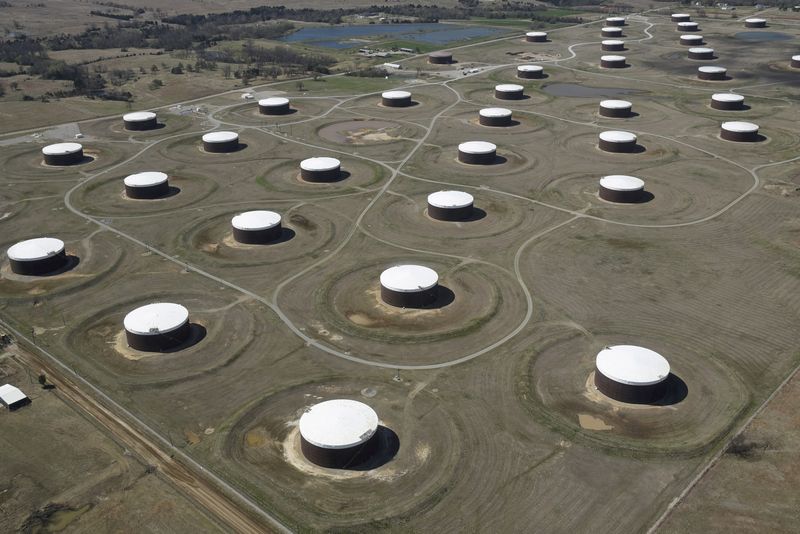Oil recoups some losses on signs of firm U.S. fuel demand
2022.08.31 03:42

FILE PHOTO: Crude oil storage tanks are seen from above at the Cushing oil hub, in Cushing, Oklahoma, U.S., March 24, 2016. REUTERS/Nick Oxford
By Sonali Paul
MELBOURNE (Reuters) – Oil prices inched up on Wednesday as industry data showed U.S. fuel stocks fell more than expected, recovering slightly from a 5% drop on Tuesday on fears fuel demand will suffer as China steps up COVID-19 curbs and central banks hike interest rates.
U.S. West Texas Intermediate (WTI) crude futures rose 64 cents to $92.28 a barrel at 0012 GMT, after sliding $5.37 in the previous session driven by recession fears.
Brent crude futures climbed 48 cents, or 0.5%, to $99.79 a barrel, trimming Tuesday’s $5.78 loss. The October contract expires on Wednesday. The more active November contract was up 61 cents, or 0.6%, at $98.45 a barrel.
Data from the American Petroleum Institute (API) showed gasoline inventories fell by about 3.4 million barrels, while distillate stocks, which include diesel and jet fuel, fell by about 1.7 million barrels for the week ended Aug. 26 [API/S].
The drawdown in gasoline inventories was nearly triple the 1.2 million barrel drop that eight analysts polled by Reuters had expected on average. For distillate inventories they had expected a drop of about 1 million barrels.
However API data showed crude stocks rose by about 593,000 barrels, against analysts’ estimates of a drop of around 1.5 million barrels.
Price gains were capped by worries that some of China’s biggest cities – from Shenzhen to Dalian – are imposing lockdowns and business closures to curb COVID-19 at a time when the world’s second-biggest economy is already experiencing weak growth.
“Worsening outbreaks of COVID-19 in China are also impacting sentiment,” ANZ Research analysts said in a note.
On the supply side, oil exports from Iraq were unaffected by the worst violence seen in Baghdad for years, three sources told Reuters on Tuesday. Clashes eased on Tuesday after powerful cleric Moqtada al-Sadr ordered his followers to end their protests.








